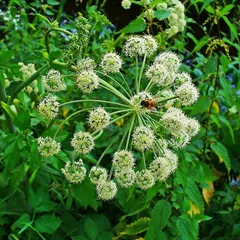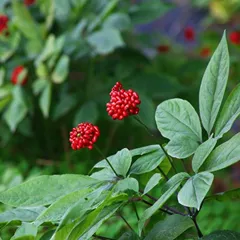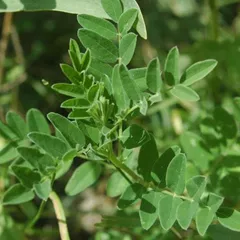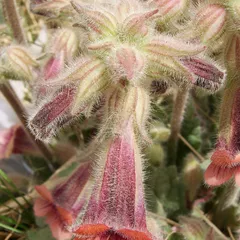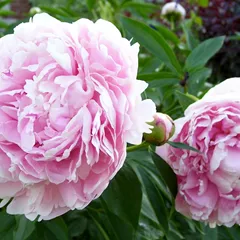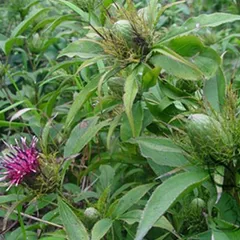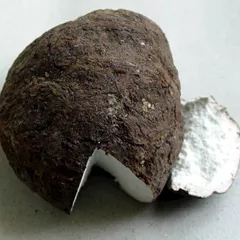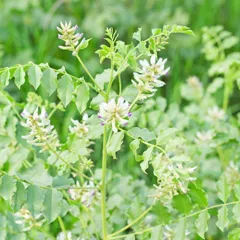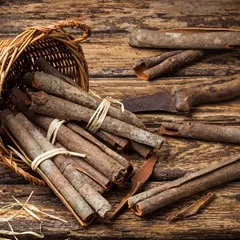Gu Ben Zhi Beng Tang
Gu Ben Zhi Beng Tang
Chinese: 固本止崩汤
Pinyin: Gù Běn Zhǐ Bēng Tāng
Other names: Consolidating the Root and Stopping Flooding Decoction, Stabilize the Root and Stop Excessive Uterine Bleeding Decoction,
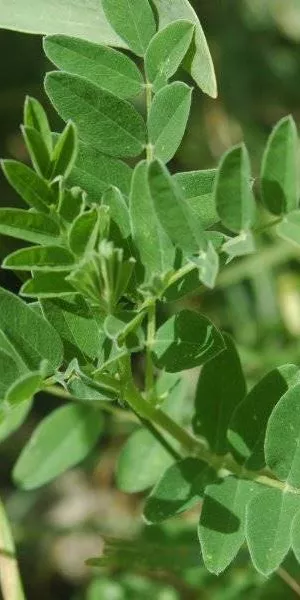
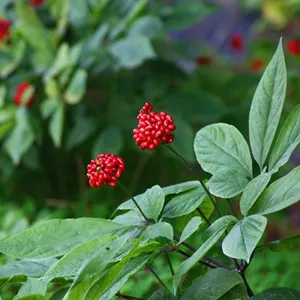
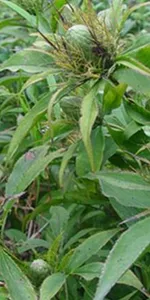
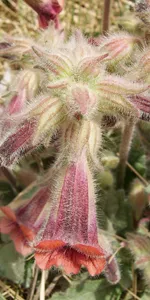
Gu Ben Zhi Beng Tang
Gu Ben Zhi Beng Tang
Chinese: 固本止崩汤
Pinyin: Gù Běn Zhǐ Bēng Tāng
Other names: Consolidating the Root and Stopping Flooding Decoction, Stabilize the Root and Stop Excessive Uterine Bleeding Decoction,
Number of ingredients: 6 herbs
Formula category: Formulas that tonify Qi and Blood
Mother formula: Gui Pi Tang
Conditions for which it may be prescribed: Intermenstrual bleedingAbnormal uterine bleeding
Main actions: Tonifies Qi and Yang
Source date: 1826 AD
Source book: Fu Qing Zhu's Gynecology
The information provided here is not a replacement for a doctor. You shouldn't use it for the purpose of self-diagnosing or self-medicating but rather so you can have a more informed discussion with a professional TCM practitioner.
Gu Ben Zhi Beng Tang is a 6-ingredient Chinese Medicine formula with Milkvetch Roots (Huang Qi), Ginseng (Ren Shen) and Atractylodes Rhizomes (Bai Zhu) as principal ingredients.
Invented in 1826 AD, it belongs to the category of formulas that tonify Qi and Blood. Its main action is that it tonifies Qi and Yang.
In Chinese Medicine health conditions are thought to arise due to "disharmonies" in the body as a system. These disharmonies are called "patterns" and the very purpose of herbal formulas is to fight them in order to restore the body's harmony.
In this case Gu Ben Zhi Beng Tang is used by TCM practitioners to fight patterns like Qi Deficiency or Spleen or Kidney Yang Deficiency. From a Western Medicine standpoint, such patterns can give rise to a range of conditions such as abnormal uterine bleeding or intermenstrual bleeding for instance.
On this page, after a detailed description of each of the six ingredients in Gu Ben Zhi Beng Tang, we review the patterns and conditions that Gu Ben Zhi Beng Tang helps treat.
The six ingredients in Gu Ben Zhi Beng Tang
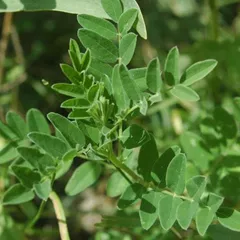
Huang Qi is a king ingredient in Gu Ben Zhi Beng Tang. Like the name indicates, it means it has more power than other ingredients in the formula.
1. Milkvetch Roots (Huang Qi)
In general Huang Qi's main actions are as follows: "Tonifies the Wei Qi and stops perspiration. Tonifies the Spleen Qi and the Yang Qi of the Earth Element. Tonifies the Qi and Blood. Expels pus and assists in the healing of wounds. Helps to regulate water metabolism in the body and reduce edema."
In the context of Gu Ben Zhi Beng Tang, it is used because it tonifies and raise Qi.
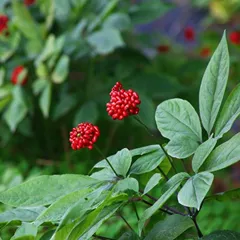
Ren Shen is a king ingredient in Gu Ben Zhi Beng Tang. Like the name indicates, it means it has more power than other ingredients in the formula.
2. Ginseng (Ren Shen)
Part used: Dried root
Nature: Warm
Meridian affinity: HeartLungSpleen
Category: Tonic herbs for Qi Deficiency
In general Ren Shen's main actions are as follows: "Very strongly tonifies the Qi. Tonifies the Lungs and Spleen. Assists the body in the secretion of Fluids and stops thirst. Strengthens the Heart and calms the Shen (mind/spirit)."
In the context of Gu Ben Zhi Beng Tang, it is used because it tonifies and raise Qi.

Bai Zhu is a king ingredient in Gu Ben Zhi Beng Tang. Like the name indicates, it means it has more power than other ingredients in the formula.
3. Atractylodes Rhizomes (Bai Zhu)
Part used: Dried rhizome
Nature: Warm
Meridian affinity: SpleenStomach
Category: Tonic herbs for Qi Deficiency
In general Bai Zhu's main actions are as follows: "Tonifies the Spleen Qi. Fortifies the Spleen Yang and dispels Damp through urination. Tonifies Qi and stops sweating. Calms restless fetus when due to Deficiency of Spleen Qi."
In the context of Gu Ben Zhi Beng Tang, it is used because it tonifies and raise Qi.

4. Prepared Rehmannia (Shu Di huang)
Part used: Prepared dried root tuber
Nature: Warm
Taste(s): Sweet
Meridian affinity: KidneyLiver
Category: Tonic herbs for Blood Deficiency
Shu Di huang nourishes Blood and strengthen Qi. Shu Di huang and Dang Gui together make sure that all ingredients enter the Blood to stop bleeding.

5. Dong Quai (Dang Gui)
Part used: Dried root
Nature: Warm
Meridian affinity: HeartLiverSpleen
Category: Tonic herbs for Blood Deficiency
Dang Gui nourishes Blood and strengthen Qi. It also calms Blood. Together with Shu Di huang it helps all ingredients enter the Blood to stop bleeding.

6. Dried Ginger (Gan Jiang)
In general Gan Jiang's main actions are as follows: "Warms the Spleen and expels Cold. Restores collapse of Yang and expels Interior Cold. Warms the Lungs and assists expectoration of Cold Phlegm. Stops chronic bleeding caused by Cold."
In the context of Gu Ben Zhi Beng Tang, it is used because it warms the Channels and stops bleeding.
Conditions and patterns for which Gu Ben Zhi Beng Tang may be prescribed
It's important to remember that herbal formulas are meant to treat patterns, not "diseases" as understood in Western Medicine. According to Chinese Medicine patterns, which are disruptions to the body as a system, are the underlying root cause for diseases and conditions.
As such Gu Ben Zhi Beng Tang is used by TCM practitioners to treat two different patterns which we describe below.
But before we delve into these patterns here is an overview of the Western conditions they're commonly associated with:
Abnormal uterine bleeding Intermenstrual bleeding
Again it wouldn't be correct to say "Gu Ben Zhi Beng Tang treats abnormal uterine bleeding" for instance. Rather, Gu Ben Zhi Beng Tang is used to treat patterns that are sometimes the root cause behind abnormal uterine bleeding.
Now let's look at the two patterns commonly treated with Gu Ben Zhi Beng Tang.
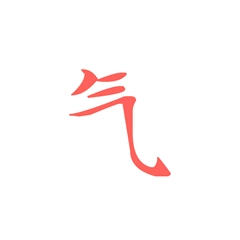
Qi is one of Chinese Medicine's vital subtances. Learn more about Qi in Chinese Medicine
Qi Deficiency
Pulse type(s): Empty (Xu), Weak (Ruo)
Tongue color: Pale
Symptoms: Fatigue Coughing Dizziness Tiredness Weak voice Amenorrhea Weak limbs Cold limbs Low energy Weak knees Empty pulse Listlessness Loose stools Palpitations Poor appetite Spermatorrhea Weak lower back General weakness Prolonged menses Daytime sweating Aversion to speak Frequent urination Pale color periods Shortness of breath Shallow respiration Spontaneous sweating Pale menstrual blood Frequent Colds or Flu Thin and watery periods Pale bright face that is puffy or bloated
Gu Ben Zhi Beng Tang is sometimes prescribed by TCM practitioners to treat Qi Deficiency. This pattern leads to symptoms such as general weakness, weak voice, fatigue and listlessness. Patients with Qi Deficiency typically exhibit empty (Xu) or weak (Ruo) pulses as well as Pale tongue.
When Qi is Deficient, it typically appears as tiredness or weakness in the body. Since Qi is lacking, it is unable to perform any of its functions. Some of the symptoms for Qi Deficiency also commonly apply for other conditions.
This may apply to any of the different types of Qi, including the Qi... read more about Qi Deficiency
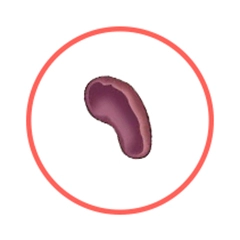
The Spleen is a so-called "Zang" Organ. Learn more about the Spleen in Chinese Medicine
Spleen or Kidney Yang Deficiency
Pulse type(s): Deep (Chen), Fine (Xi)
Tongue color: Pale
Tongue shape: Swollen, Tooth-marked
Symptoms: Edema Coughing Vomiting Tinnitus Dizziness Back pain Knee pain Tiredness Depression Loose stools Palpitations Feeling of cold Urinary difficulty Frequent urination Heavy sensation in the head Abdominal pain that worsens with cold Deep aching and heaviness in the extremities
Gu Ben Zhi Beng Tang is sometimes prescribed by TCM practitioners to treat Spleen or Kidney Yang Deficiency. This pattern leads to symptoms such as abdominal pain that worsens with cold, urinary difficulty, deep aching and heaviness in the extremities and dizziness. Patients with Spleen or Kidney Yang Deficiency typically exhibit deep (Chen) or fine (Xi) pulses as well as a pale tongue.
Formulas similar to Gu Ben Zhi Beng Tang
Sheng Yu Tang is 67% similar to Gu Ben Zhi Beng Tang
Shen Qi Si Wu Tang is 67% similar to Gu Ben Zhi Beng Tang
Tong Ru Dan is 50% similar to Gu Ben Zhi Beng Tang
Shi Quan Da Bu Tang is 50% similar to Gu Ben Zhi Beng Tang
Ju Yuan Jian is 50% similar to Gu Ben Zhi Beng Tang
Ren Shen Dang Gui Tang is 50% similar to Gu Ben Zhi Beng Tang

